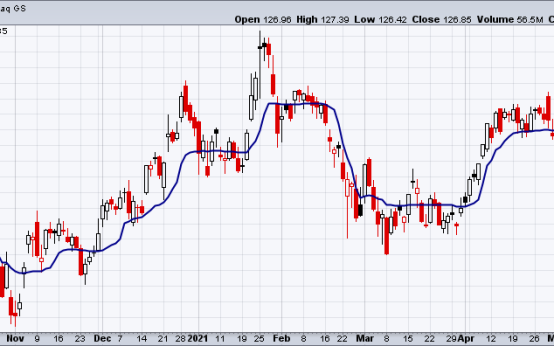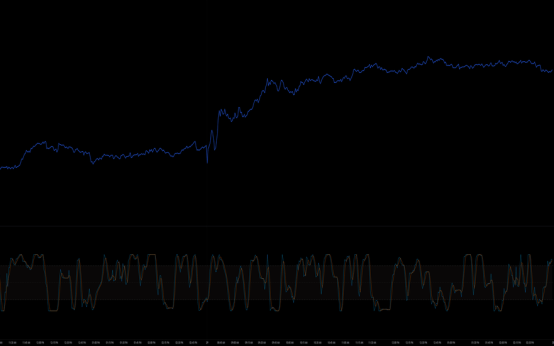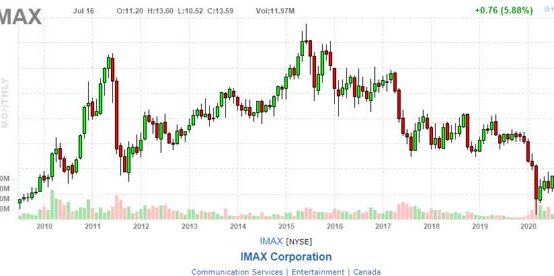As earnings reports continue to roll in, investors may be taking a closer look at companies that they own. Staying on top of the most recent releases may help investors figure out if the company is well-positioned for future success. Taking a look at some earnings projections, we note that the current quarter EPS consensus estimate for Harris Corporation (NYSE:HRS) is 2.18. This EPS estimate consists of 4 sell-side analysts taken into consideration by Zacks Research. For the last reporting period, the company reported a quarterly EPS of 1.96. Sell-side analysts often provide their best researched estimates for what the company will report. These estimates carry a lot of weight on Wall Street and the investing community. When a company reports actual earnings results, the surprise factor may cause the stock price to fluctuate more than normal. Investors will often pay added attention to a company that has surpassed expectations by a wide margin.
Trying to predict the day to day short-term movements of the stock market can be nearly impossible. Stocks have the tendency to make sudden moves on even the slightest bit of news or for apparently no reason at all. The daily trader may be looking to capitalize on swings or momentum, but the long-term investor may be searching for stability and consistency over a sustained period of time. During trading sessions, stock movements can seem like a popularity contest from time to time. Even after meticulous study, there may be no logical reason for a particular stock move. Riding out the waves of uncertainty may not be easy, but having a full-proof plan for when markets turn bad might be a great help to investors for long-term portfolio health.
Wall Street analysts often give buy/sell/hold ratings for the companies that they track. Investors have the ability to view these sell-side ratings in order to help with their own stock research. Analyst ratings may have different interpretations. According to analysts polled by Zacks Research, the current average broker rating on shares of Harris Corporation (NYSE:HRS) is 1.38. This rating uses a scale between 1 and 5. Following this scale, a rating of 1 would represent a Strong Buy, and a rating of 5 would indicate a Strong Sell recommendation. Out of all these analysts offering ratings, 7 have rated the stock a Strong Buy or Buy, according to Zacks Research.
Shifting the focus to some possible support and resistance levels on shares of Harris Corporation (NYSE:HRS), we note that the 52-week high is currently $173.53, and the 52-week low is currently $127.26. When shares are trading near to the 52-week high or 52-week low, investors may be watching for a break through either level. Investors may also be watching historical price action. Over the past 12 weeks, the stock has moved 16.71%. Going back to the start of the year, we can see that shares have moved 23.02%. Over the last 4 weeks, shares have seen a change of 2.15%. Over the last 5 trading days, the stock has moved 0.26%. Checking in on recent session activity, we have seen that the stock has been trading near the $165.65 mark.
Looking further at shares of Harris Corporation (NYSE:HRS), we have noticed that the current consensus target price is $187.25. Wall Street analysts have the ability to create price target estimates for where they think the stock will be moving in the near-term. Because price target projections can differ from one analyst to the next, they may span a wide range of values. Many investors will closely track target prices, and they tend to pay extra close attention when analysts make revisions to those targets.
The primary goal for some beginner traders might be just trying to survive. Traders that are disciplined with their money management may be able to better ride out the bumps that come with inexperience. Amateur traders tend to put too much at risk which can increase frustration during an extended losing streak. The more capital that is lost, the more difficult it can be to recover. Markets can be cruel, and traders that jump in without proper preparation can get pounded. Taking the time to carefully prepare before putting hard earned money at risk can help when the inevitable sticky situations arise.
 Kaufman Adaptive Moving Average Trending Up for Federal Signal Corp (FSS)
Kaufman Adaptive Moving Average Trending Up for Federal Signal Corp (FSS)  Checking on the Valuation For Shares of Zymeworks Inc. (TSX:ZYME), Talend S.A. (NasdaqGM:TLND)
Checking on the Valuation For Shares of Zymeworks Inc. (TSX:ZYME), Talend S.A. (NasdaqGM:TLND)  Consensus EPS Watch for Royal Caribbean Cruises Ltd. (NYSE:RCL)
Consensus EPS Watch for Royal Caribbean Cruises Ltd. (NYSE:RCL)  Estimates in Focus for Shares of Royal Caribbean Cruises Ltd. (NYSE:RCL)
Estimates in Focus for Shares of Royal Caribbean Cruises Ltd. (NYSE:RCL)  Caribbean Holdings International Corp (CBBI): Watching the Stochastic RSI on This Stock
Caribbean Holdings International Corp (CBBI): Watching the Stochastic RSI on This Stock  Signal Update on Shares of Imax Corp (IMAX): Weighted Alpha Hits -3.90
Signal Update on Shares of Imax Corp (IMAX): Weighted Alpha Hits -3.90